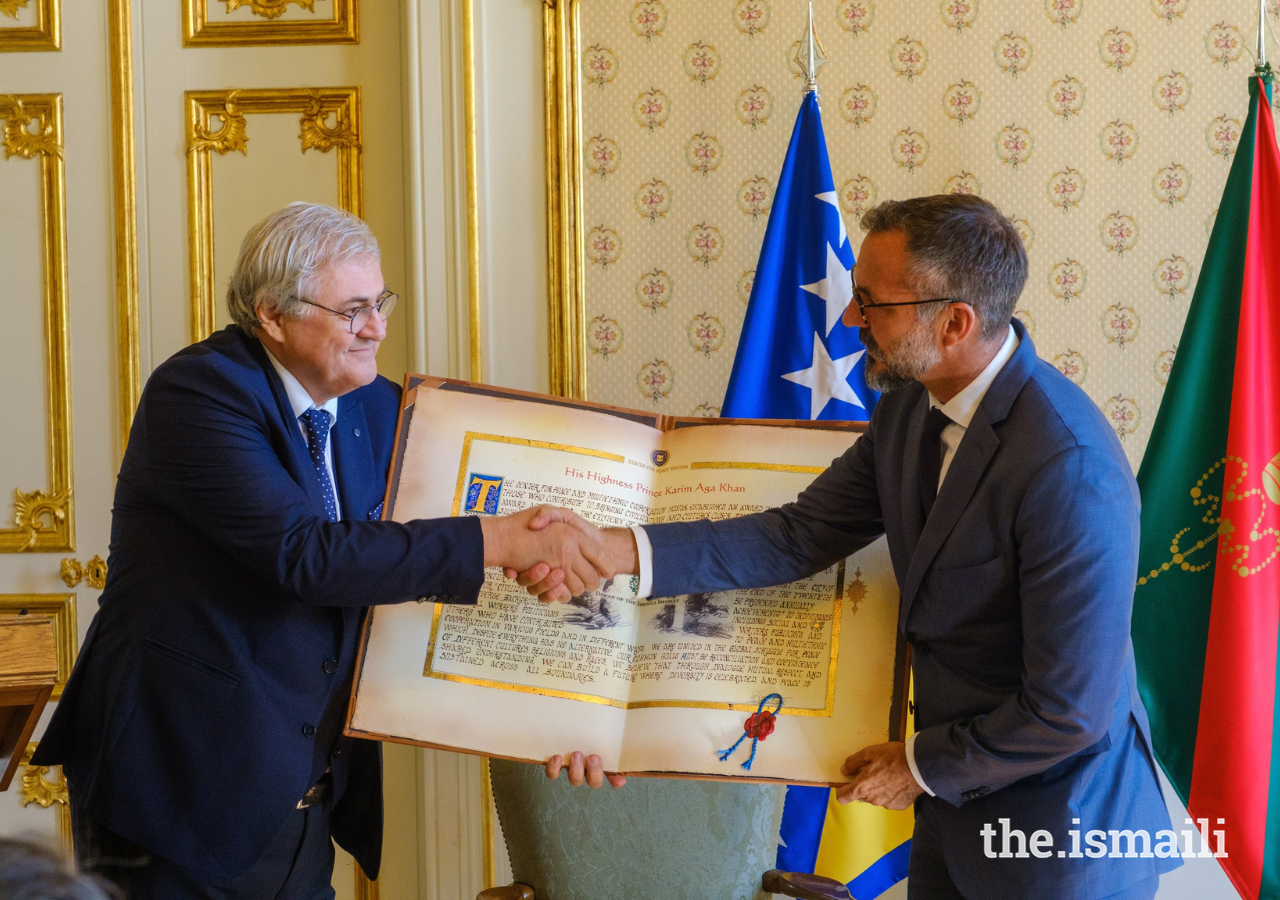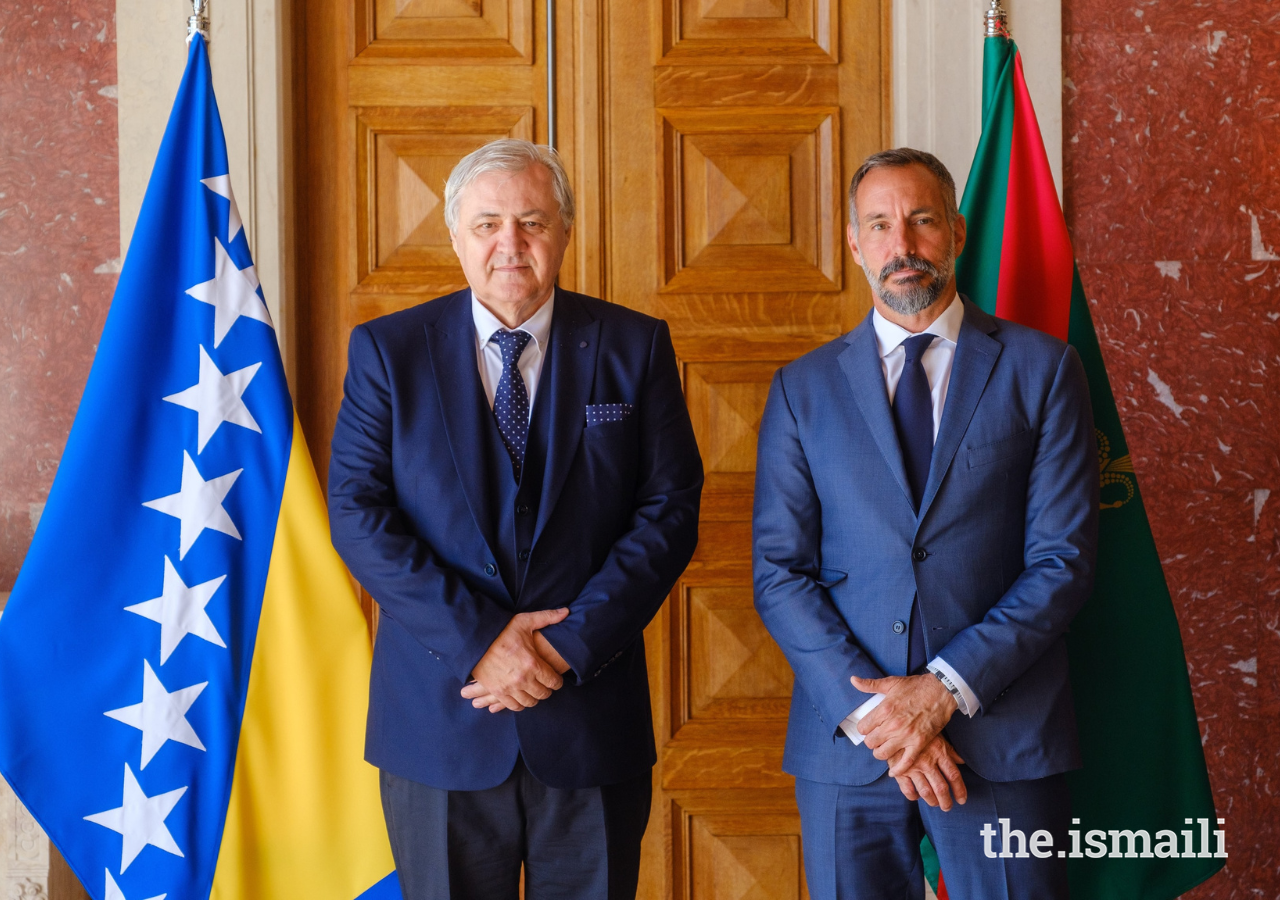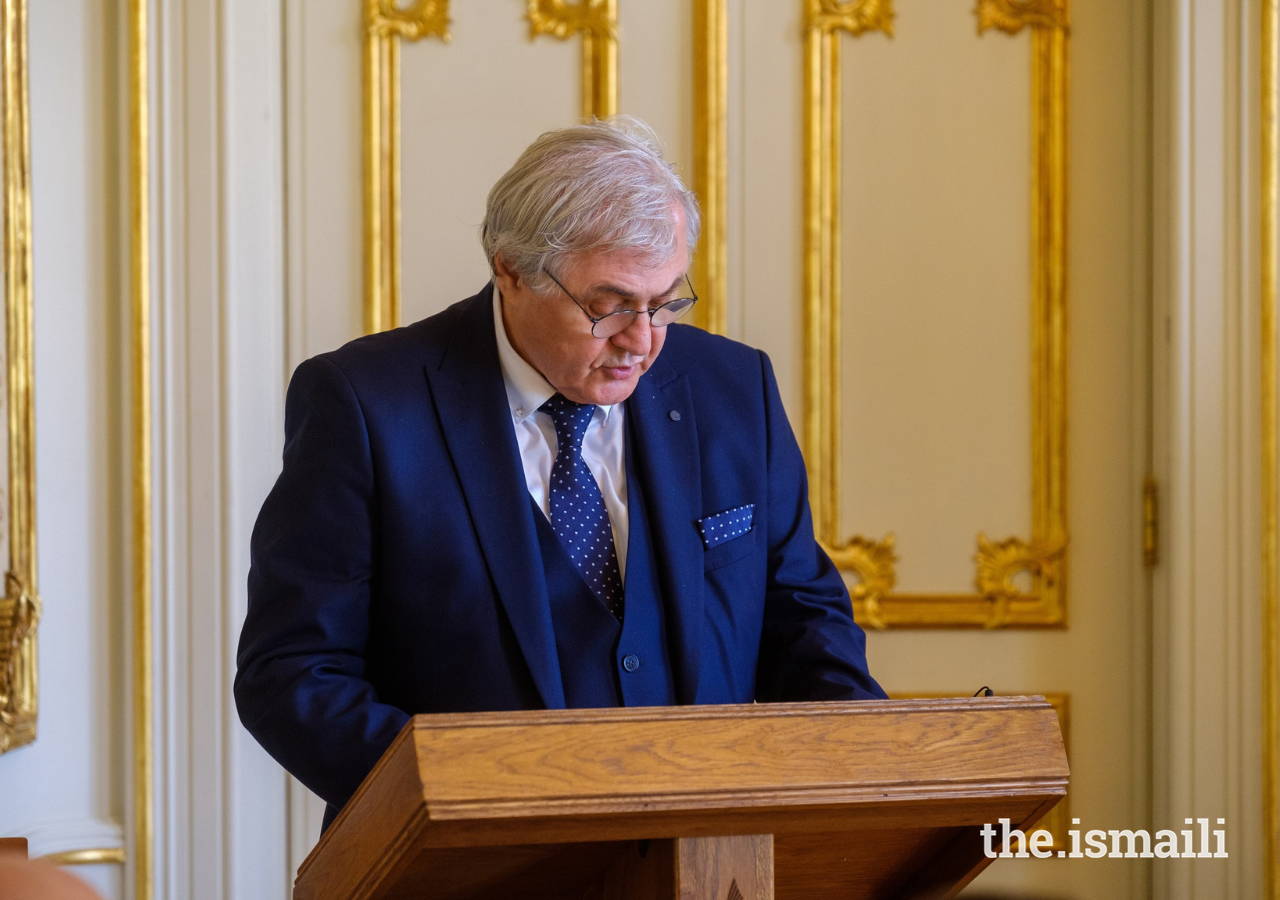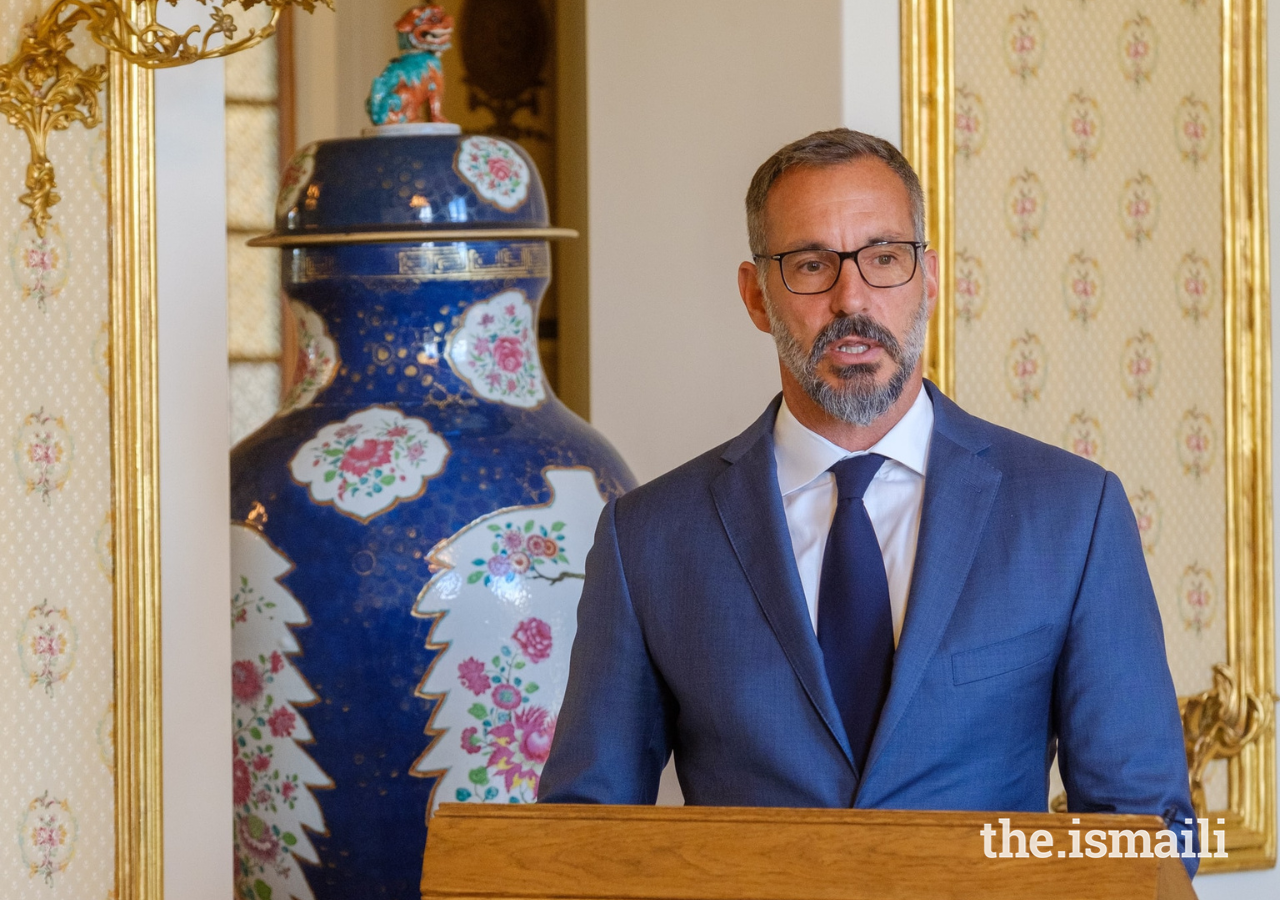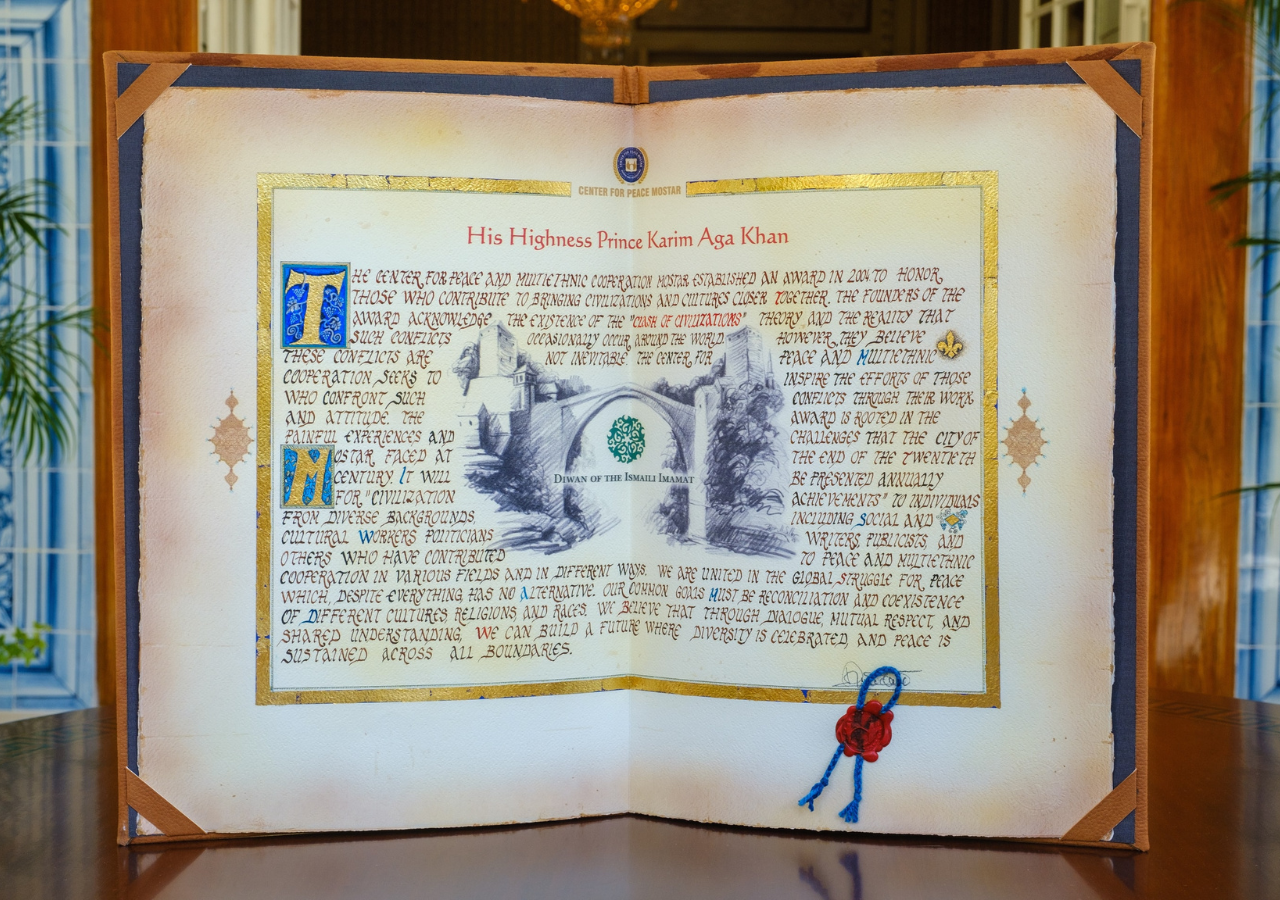The Peace Connection Award was established in 2004 to recognise individuals and organisations that demonstrate a strong commitment to peace, cooperation and understanding worldwide. Previous recipients include, amongst others, Nelson Mandela, Mohamed ElBaradei and António Guterres.
“His Highness’s entire life has been dedicated to a humanitarian mission to preserve the highest values of humanity,” said Safet Orucevic, Director of Mostar’s Center for Peace and Multiethnic Cooperation and former Mayor of Mostar from 1994-2001. “This Award is a symbolic gesture of our gratitude for your support of our city and people in the most challenging times.”
The Center for Peace and Multiethnic Cooperation also conferred the Mostar Charter of Peace on the Aga Khan Trust for Culture (AKTC) for its efforts in the restoration of Mostar between 1998 and 2004.
Prince Rahim accepted the awards on behalf of Hazar Imam at a presentation ceremony at the Diwan of the Ismaili Imamat in Lisbon.
The awards are presented every year to mark the anniversary of the reconstruction of Stari Most, the 16th-century Ottoman bridge that connects the two parts of the city of Mostar in Bosnia and Herzegovina. The bridge is a prime example of Balkan Islamic architecture. Commissioned by Suleiman the Magnificent in 1557, it was designed by Mimar Hayruddin, a student and apprentice of the renowned architect Mimar Sinan.
After it was destroyed during the 1992-1995 Croat-Bosniak war, a coalition formed to rebuild the bridge, comprising UNESCO, the World Bank and the World Monuments Fund, which also partnered with AKTC to oversee the restoration of Mostar's historic city centre.
“AKTC worked on a detailed conservation and development plan for the old city,” explained Prince Rahim. “It undertook conservation of four historic buildings in the neighbourhoods flanking the Old Bridge complex on both sides of the Neretva River, in an effort to re-establish their physical and operational integrity. Together with the Old Bridge, these structures form an integral and essential part of Mostar’s historic townscape, fostering peace, stability and opportunity.”
The project culminated in Mostar’s inclusion on the UNESCO World Heritage list. Today, Stari Most and the city of Mostar are powerful symbols of peace and tolerance, representing the resilience of the communities and their commitment to rebuilding connections across cultural and religious groups.
“Today, more than ever, the world needs that spirit of pluralism and inclusiveness embodied in the reconstruction of the Mostar Bridge, which we are proud to have been a part of,” said Prince Rahim. “The Awards presented to us today are a most welcome encouragement to continue working in favour of peace among communities in different parts of the world that share the unwavering value of pluralism.”
His Highness Prince Karim Aga Khan
The Center for Peace and Multiethnic Cooperation Mostar established an award in 2004 to honor those who contribute to bringing civilizations and cultures closer together. The founders of the award acknowledge the existence of the “clash of civilizations” theory and the reality that such conflicts occasionally occur around the world. However, they believe these conflicts are not inevitable. The Center for Peace and Multiethnic Cooperation seeks to inspire the efforts of those who confront such conflicts through their work and attitude.
The award is rooted in the painful experiences and challenges that the city of Mostar faced at the end of the twentieth century. It will be presented annually for “civilization achievements” to individuals from diverse backgrounds, including social and cultural workers politicians, writers, publicists, and other who have contributed to peace and multiethnic cooperation in various fields and in different ways.
We are united in the global struggle for peace which, despite everything, has no alternative. Our common goals must be reconciliation and coexistence of different cultures, religions, and races. We believe that through dialogue, mutual respect, and shared understanding, we can build a future where diversity is celebrated, and peace is sustained across all boundaries.

